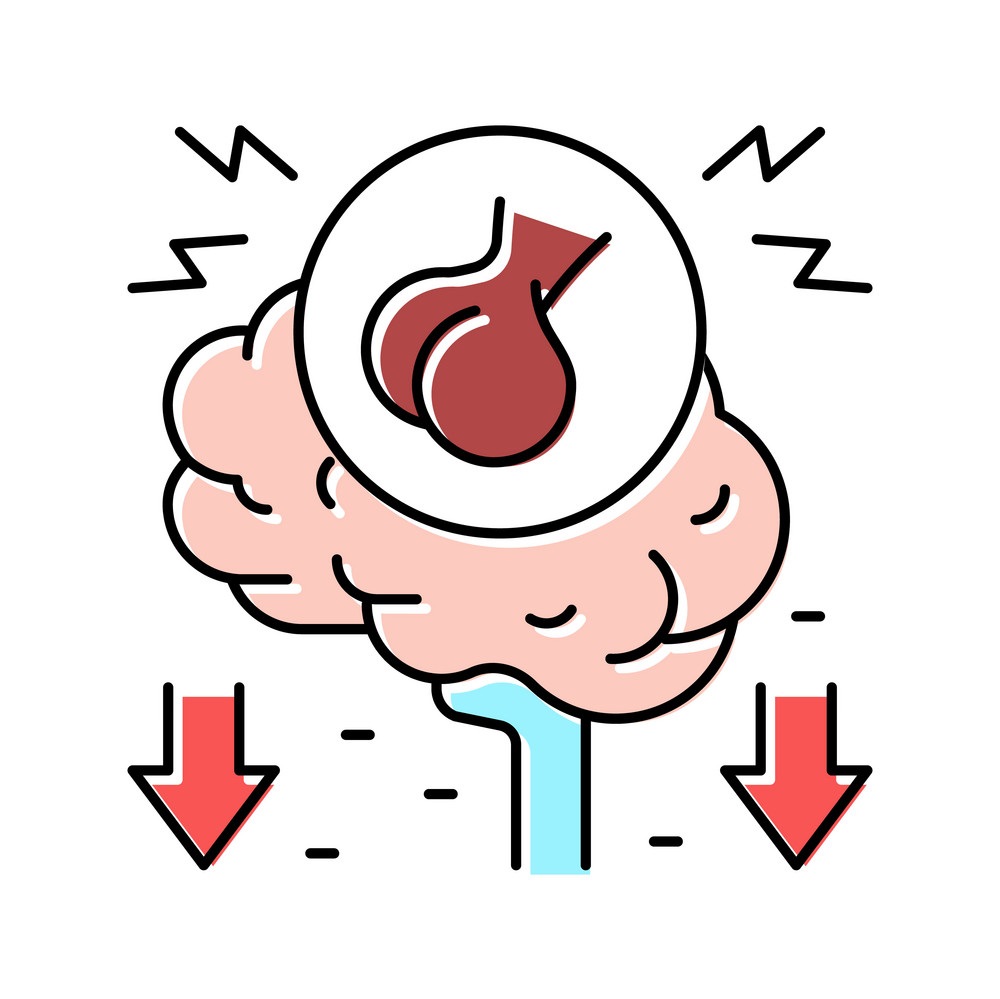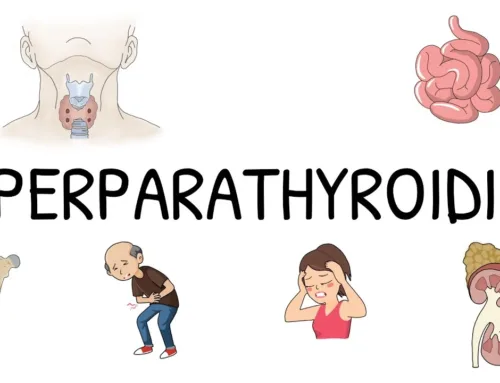This blog includes all the necessary details about Hypopituitarism Pituitary Gland Disorder Causes & Treatments. Read the blog till the end.
Hypopituitarism is a rare disorder that occurs when there is a deficiency of the pituitary gland. This can lead to the malfunctioning of other glands, most notably the adrenal glands. However, hypopituitarism often results in problems with the adrenal glands’ function, such as lack of cortisol production and hyperplasia (ability to produce different tissues).

Source: VectorStock
Pituitary Gland Disorders
A pituitary gland disorder is a medical condition affecting the pituitary gland, which is located at the base of your brain. The pituitary gland secretes hormones that regulate your body’s growth, metabolism, and other functions. These hormones are released from the gland in response to certain signals from the hypothalamus or thalamus. For example, when you eat food or drink water, your hypothalamus sends a signal to the pituitary gland to produce growth hormone. The pituitary then releases this hormone into your bloodstream.
Growth hormone is responsible for helping build new muscle tissue and bones, as well as contributing to heart health by regulating blood pressure and blood sugar levels. It also plays an important role in the development of sexual organs during puberty by increasing testosterone production.

Source: VectorStock
Pituitary Adenomas
Pituitary adenomas are the most common type of pituitary tumor. They may occur in people of any age but most often begin to develop between the ages of 20 and 40 years old.
Pituitary adenomas are identified as a tumor that is not normal and has characteristics of a tumor. This type of cancer accounts for about 50 percent of all pituitary tumors, but only 5 percent of all cancers are diagnosed in the United States each year.
In most cases, a pituitary adenoma appears as one or more growths on the pituitary gland (the organ that produces hormones) outside the brain. Growths can be large or small, smooth or unevenly shaped, and may have an irregular shape. The size of these tumors often fluctuates over time; they grow slowly at first and then increase rapidly in size as they continue to grow throughout life.
Pituitary adenomas are not cancer and do not cause any symptoms. They usually cause no problems until they grow large enough to interfere with normal pituitary function or compress normal pituitary tissue.
Hypopituitarism
Hypopituitarism is a pituitary gland disorder that is defined by low levels of hormones. Hypopituitarism is when problems with one or more of these glands cause inadequate production or release of these hormones. This may occur if there is damage to any part of your brain (cerebral hypoperfusion) or if you have a tumor on one or both sides of your brain (paradoxical) that prevents normal function.

Source: VectorStock
These hormones are supplements to all the other endocrine glands and affect mood, growth, sex drive, and much more. If you have low levels of thyroid hormone, then it’s called hypothyroidism; if you have low levels of adrenal hormones, then it’s called Addison’s disease; If you have low FSH levels, then it’s called ovarian failure; if you have low LH levels, then it’s called hypoactive prolactin. Each of these conditions can cause infertility and other symptoms such as fatigue.
What Are the Symptoms Of Hypopituitarism?
The symptoms of hypopituitarism are similar to those of other diseases. The most common symptoms are:
- Depression
- Anxiety and panic attacks
- The sensation of pins and needles in the hands or feet (paraesthesia)
- Back pain that is worse when you bend over or twist your body (spinal column pain)
- Weakness
- Low or no sex drive
- Fatigue, especially early in the morning
- Weight loss, although this may not be noticeable to the patient
- Tiredness
- Lightheadedness
- Muscle twitching
- Fever and chills
- Headaches
- Nausea or vomiting
- Muscle aches and pains
- Irritability
- Excessive sweating, especially of the palms and soles of the feet
What Causes Hypopituitarism?
The causes of hypopituitarism are complex and varied. It may be caused by a number of different diseases, most commonly by the following:
1. Autoimmune Diseases (Such As Systemic Lupus Erythematosus, Rheumatoid Arthritis, Hashimoto’s Thyroiditis, And Other Autoimmune Disorders)
The most common cause of hypopituitarism is an autoimmune disease. Autoimmune diseases occur when the body’s immune system attacks its own cells or tissues. Some autoimmune conditions, such as rheumatoid arthritis and lupus, can lead to hypopituitarism. Other autoimmune diseases, such as Hashimoto’s thyroiditis, may not lead to hypopituitarism but can cause other symptoms that can be confused with pituitary problems, including low thyroid hormone levels and fatigue.
2. Bacterial Endocarditis (Heart Infection)
Bacterial endocarditis occurs when bacteria infect the heart valves and then spread throughout the rest of the body through the bloodstream. This condition can cause hypopituitarism by damaging or destroying the pituitary gland.
3. Brain Tumors Or Cancer
Brain tumors, malignant melanoma, and other cancers that affect the pituitary gland are also known to cause hypopituitarism in some people. However, this type of pituitary damage is rare because most brain tumors are slow-growing and often detected during the late stages of life when symptoms are present anyway.
4. Cushing’s Syndrome (A Rare Condition In Which Excess Levels Of Cortisol Build Up In The Body)
Cushing’s syndrome is caused by excess cortisol, a hormone that is normally produced by the adrenal glands. The pituitary gland makes a protein called PTH that acts as a regulator of calcium levels in the blood. Excess cortisol causes an increase in PTH levels, which sends more calcium into the bones. This can lead to osteoporosis and other problems with bone health.

Source: VectorStock
5. Cystic Fibrosis (An Inherited Disease That Affects The Lungs And Digestive System)
Cystic fibrosis is an inherited disorder that causes your lungs to become clogged with thick mucus secretions that make breathing difficult. Symptoms may include chronic cough, wheezing, chest pain, and shortness of breath. Cystic fibrosis also affects other organs, including your pancreas (the organ that produces insulin) and reproductive system (the organs that produce sex hormones).
6. Drugs Like Steroids And Anabolic Steroids (Which Can Lead To Hypogonadism)
Steroids are used for many conditions such as asthma or arthritis and can cause hypopituitarism if taken for long periods of time or in high doses. Anabolic steroids are used by athletes to build muscle mass, but they can also cause hypopituitarism if taken for too long or if used excessively.
7. Ectopic Pregnancy (A Pregnancy That Occurs Outside The Uterus; In This Case, Outside Of The Testes Or Ovaries)
This is a rare cause of hypopituitarism. It results in the absence of the pituitary gland. The pituitary gland produces hormones that regulate the production of gonadotropins, which are also known as gonadotropins. These hormones are responsible for controlling sex hormone production in women and initiating puberty in boys. With this condition, there is no production or secretion of gonadotropins by the pituitary gland.
8. Injury Or Trauma To The Pituitary Gland Or Hypothalamus (Pituitary Gland Is Located Behind Your Eyes On Top Of Your Brain.)
Pituitary tumors are rare but can cause hypopituitarism if they rupture and spread throughout your body. Damage to your hypothalamus may result in hypopituitarism due to damage done to its function during surgery to remove it.
9. Infections (Such As Tuberculosis, Hepatitis B, Hepatitis C, Mumps, And Syphilis)
Infections can cause hypopituitarism by damaging your hypothalamus or pituitary gland. This can lead to low levels of thyroxine (T4) and triiodothyronine (T3) hormones that control metabolism, growth, and sexual development.
10. Metastatic Cancer
The pituitary gland is located at the base of the brain, just below the hypothalamus. If a tumor grows in this area, it may compress or damage the pituitary gland and cause hypopituitarism.
11. Amino Acid Deficiency Syndrome (ADA)
Amino acids are building blocks that makeup proteins in all living things — they are essential nutrients needed for life. When you don’t get enough amino acids, or you don’t use them properly (such as in the prescribed manner).
In men, low testosterone – often referred to as hypogonadism – is a common cause of hypopituitarism. In women, it can be caused by conditions such as polycystic ovary syndrome (PCOS), endometriosis, or ovarian cancer.
How Is Hypopituitarism Treated?
Treatment options for hypopituitarism include hormone replacement therapy (HRT), pituitary radiation therapy, and pituitary surgery.
Source: VectorStock
1. Hormone Replacement Therapy
Hormone replacement therapy (HRT) is the main treatment for hypopituitarism. It helps with symptoms related to low levels of hormones such as fatigue, depression, weight gain, and lack of sex drive. HRT can also improve bone density and reduce the risk of osteoporosis in older adults.
2. Pituitary Radiation Therapy
Pituitary irradiation is another option if you have a tumor on your pituitary gland. It involves sending high-energy rays through your head to destroy the tumor while it’s still inside your body. However, this type of treatment has not been shown to be effective in treating most tumors that cause hypopituitarism, and side effects are common.
3. Pituitary Surgery
If surgery is needed, it can be performed through an endoscope inserted into one nostril or through a hollow tube placed into one nostril (endoscopic sinus surgery). In some cases, removal of part or all of the pituitary gland may be necessary.
Conclusion & Takeaway
With all of this in mind, we hope that you feel a little more equipped when you next come face to face with Hypopituitary. Not only do we want you to better understand this condition, but we also want to ensure that you are properly supported and given the treatment option that’s right for you.
The best way to help your body regain normal functioning of the pituitary gland is through hormone replacement therapy. Depending on your symptoms and condition, HRT can return several hormones back to normal levels or homeostasis. However, the most important factor in HRT is a doctor who has had ample experience with pituitary disorders, such as our endocrinologist at Houston Endocrine Center, Dr. Zubair Mirza Baig.
Remember: Doctors may prescribe a different treatment plan than what’s been discussed above, so never be afraid to ask questions and talk it out with those treating you. With the right doctor and the right medical treatment plan, Hypopituitary doesn’t have to put a hold on your active life!




Leave A Comment